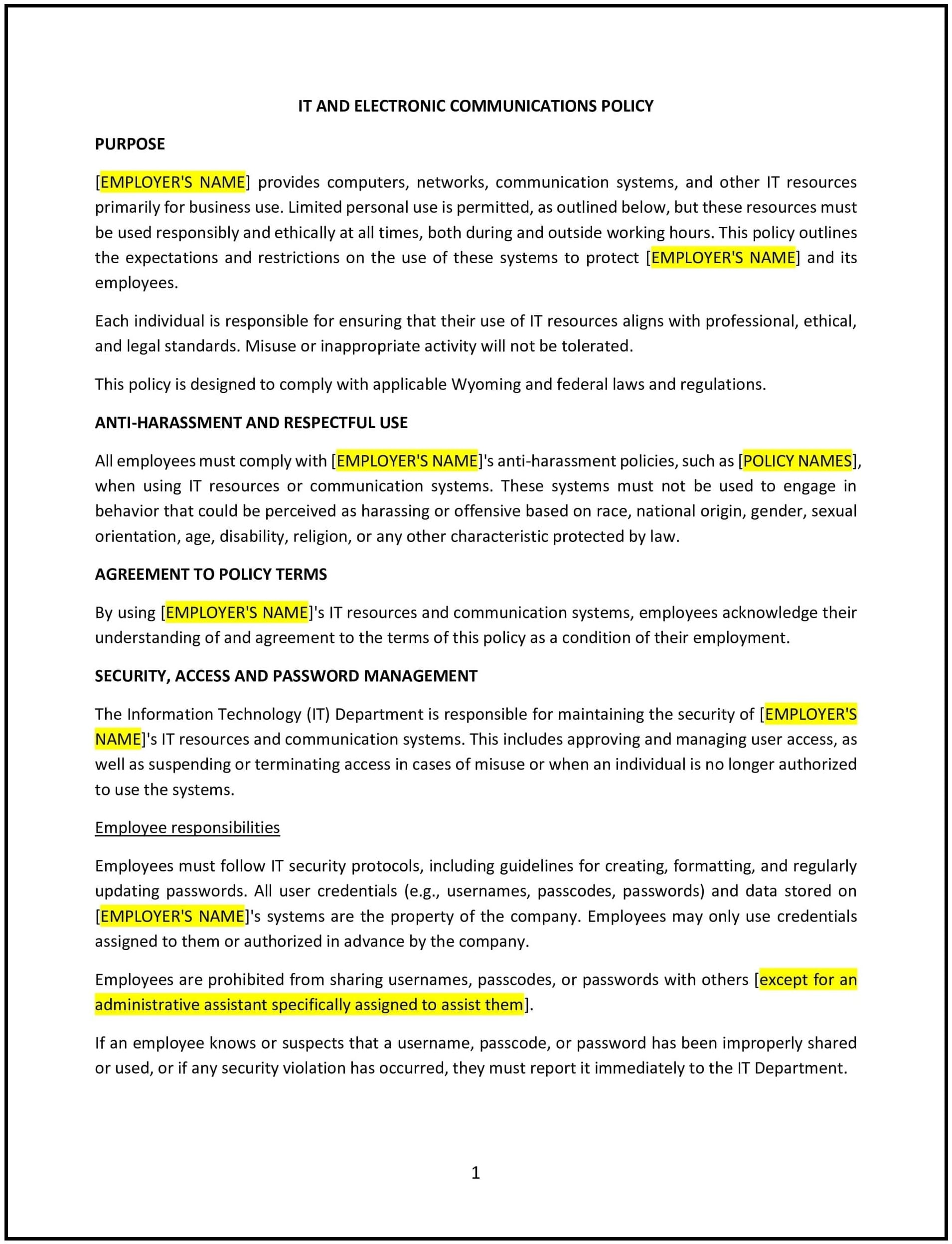IT and electronics communications policy (Wyoming): Free template
Got contracts to review? While you're here for policies, let Cobrief make contract review effortless—start your free review now.

Customize this template for free
IT and electronics communications policy (Wyoming)
In Wyoming, an IT and electronics communications policy provides guidelines for the appropriate use of company-provided technology and communication tools. This policy is essential for protecting sensitive information, ensuring productivity, and maintaining compliance with state and federal regulations.
This policy outlines acceptable use, security measures, and employee responsibilities for using IT systems, electronic devices, and communication platforms, fostering a secure and efficient digital environment.
How to use this IT and electronics communications policy (Wyoming)
- Define acceptable use: Clearly specify how employees may use company-provided IT resources, such as computers, email, and internet access, for business purposes.
- Set security expectations: Include guidelines for password protection, data encryption, and safe browsing practices to minimize cybersecurity risks.
- Outline prohibited activities: Detail activities that are not allowed, such as accessing inappropriate content, using unauthorized software, or engaging in personal use that disrupts work.
- Establish monitoring protocols: Inform employees about the company’s right to monitor IT usage to maintain compliance and protect business assets.
- Support compliance: Align the policy with Wyoming and federal laws, including data protection regulations, to reduce legal risks.
Benefits of using an IT and electronics communications policy (Wyoming)
A well-structured IT and electronics communications policy offers several benefits for Wyoming businesses:
- Enhances security: Protects company data and systems from unauthorized access, cyber threats, and breaches.
- Supports compliance: Aligns with legal requirements for data protection and electronic communications.
- Improves productivity: Minimizes distractions and ensures that IT resources are used for business purposes.
- Reduces risks: Establishes clear guidelines to prevent misuse of technology and mitigate potential liabilities.
- Adapts to local needs: Addresses Wyoming’s unique business environment and workforce technology requirements.
Tips for using an IT and electronics communications policy (Wyoming)
- Provide training: Educate employees on cybersecurity best practices and the proper use of IT resources to support compliance with applicable laws.
- Regularly update systems: Keep software and hardware up-to-date to reduce vulnerabilities and maintain efficiency.
- Foster accountability: Encourage employees to take responsibility for safeguarding company IT resources and reporting potential issues.
- Monitor usage: Implement monitoring systems to support compliance while respecting employee privacy.
- Review periodically: Update the policy to reflect changes in technology, laws, or organizational needs.